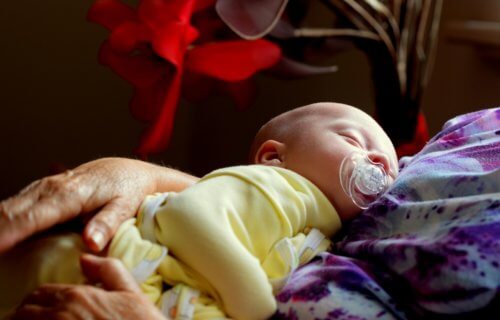BATH, United Kingdom — International researchers are delving into the age-old question: why is it so hard for humans to have a baby? One answer may have to do with “selfish chromosomes” — which may explain why most human embryos die very early on.
Professor Laurence Hurst, director of the Milner Centre for Evolution at the University of Bath, found the sudden cause of many of these early embryo deaths are due to the wrong number of chromosomes. There should be 46 chromosomes in fertilized eggs — 23 from the mother’s eggs and 23 from the father’s sperm.
“Very many embryos have the wrong number of chromosomes, often 45 or 47, and nearly all of these die in the womb. Even in cases like Down syndrome with three copies of chromosome 21, about 80% sadly will not make it to term,” Hurst says in a university release.
The study found the wrong number of embryo chromosomes usually happens due to mistakes that occur when the eggs develop in the mother. Over 70 percent of eggs have the wrong number of chromosomes. The study also revealed that mistakes happen in the first two steps of the development of the eggs. The first step is susceptible to mutations that interfere with the process, “such that the mutation can ‘selfishly’ sneak into more than 50% of the eggs, forcing the partner chromosome to be destroyed, a process known as centromeric drive,” according to the team.
Can early egg loss be evolutionary beneficial?
An egg with one too many or one too few chromosomes can still be evolutionary better off after a selfish mutation fails. Since the mother continuously feeds the developing fetus in the womb, Hurst says, it is evolutionary beneficial to lose embryos developing from defective eggs earlier rather than have them reach full term. The surviving offspring do better than the average because of this.
“The first step of making eggs is odd. One chromosome of a pair will go to the egg, the other will be destroyed. But if a chromosome ‘knows’ it is going to be destroyed it has nothing to lose, so to speak. Remarkable recent molecular evidence has found that when some chromosomes detect that they are about to be destroyed during this first step, they change what they do to prevent being destroyed, potentially causing chromosome loss or gain, and the death of the embryo,” explains Hurst.
“What is remarkable, is that if the death of the embryo benefits the other offspring of that mother, as the selfish chromosome will often be in the brothers and sisters that get the extra food, the mutation is better off because it kills embryos.”
Hurst adds that chromosome loss or gain is a problem for every mammal, with humans being especially vulnerable to this.
“It is a downside of feeding our offspring in the womb. If they die early on, the survivors benefit. It leaves us vulnerable to this sort of mutation,” the researcher continues.
The death of a human embryo early on enables a mother to rapidly reproduce again, since she probably never knew the egg was fertilized. Hurst also suggests that low levels of a protein called Bub1 could cause loss or gain of a chromosome in humans.
“The levels of Bub1 go down as mothers get older and as the rate of embryonic chromosomal problems goes up. Identifying these suppressor proteins and increasing their level in older mothers could restore fertility,” the researcher concludes.
Hurst hopes his findings can help women who experience difficulties getting pregnant or who suffer miscarriages.
The study is published in the journal PLoS, Biology.

